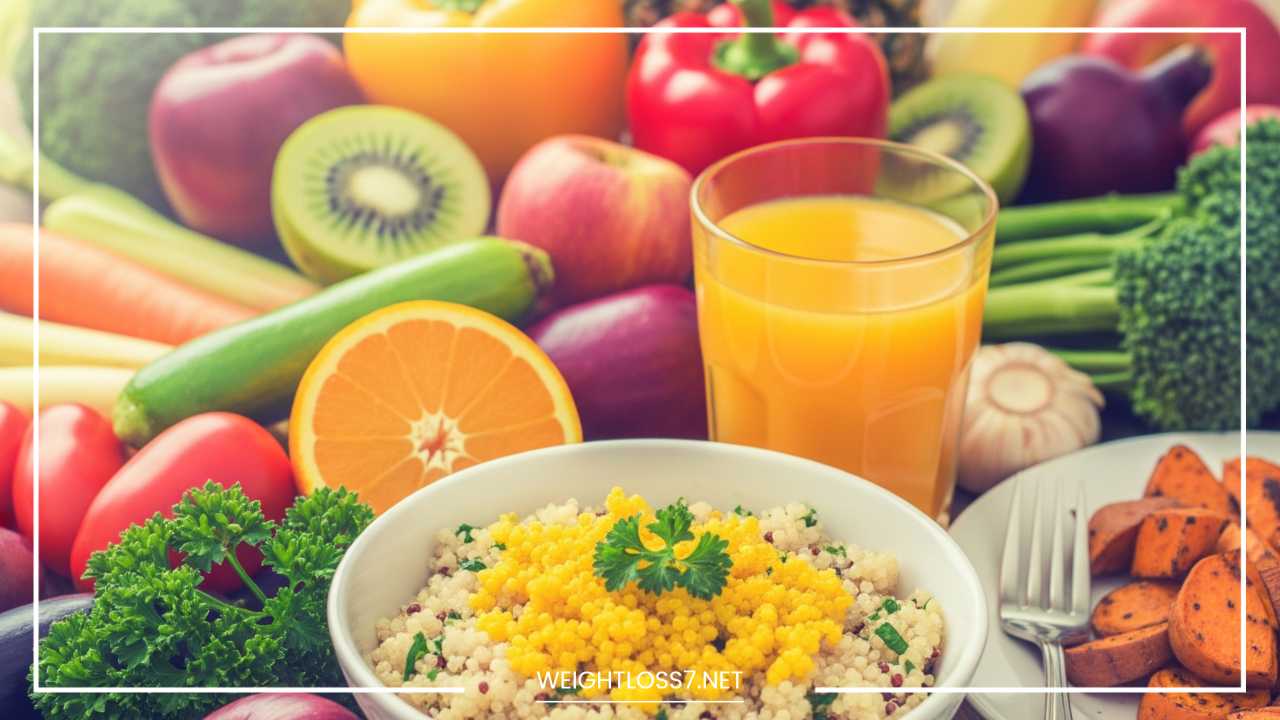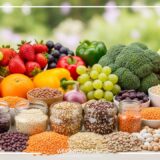What’s the Best Way to Lose Weight?
The Path to Sustainable Weight Loss: Nourishing Your Body, Transforming Your Life
The quest for weight loss is a journey many embark upon, often fraught with conflicting information, fleeting fads, and the alluring promise of quick fixes. Yet, true, sustainable weight loss isn’t about deprivation or extreme measures; it’s about a profound shift in how we approach our bodies, our food, and our overall well-being. This article delves into a holistic, plant-centric approach to shedding excess weight, emphasizing nourishment, mindful living, and a deep understanding of your unique physiological landscape.
Beyond the Scale: Defining True Success
Before diving into strategies, it’s crucial to redefine what “success” means in the context of weight loss. While the number on the scale offers a snapshot, it doesn’t tell the whole story. True success encompasses:
- Improved Health Markers: Lower blood pressure, better blood sugar control, improved cholesterol levels.
- Increased Energy and Vitality: Waking up feeling refreshed, sustained energy throughout the day.
- Enhanced Mood and Mental Clarity: A positive outlook, reduced brain fog.
- Greater Physical Mobility and Strength: Enjoying activities with ease, building functional fitness.
- A Sustainable Relationship with Food: Eating intuitively, without guilt or restrictive cycles.
- Self-Acceptance and Body Positivity: Cultivating a respectful and loving attitude towards your body.
Focusing solely on weight can be discouraging and lead to unhealthy behaviors. By broadening our definition of success, we empower ourselves to make choices that truly serve our long-term health.
The Cornerstone of Change: Caloric Awareness, Not Caloric Obsession
At its core, weight loss boils down to a fundamental principle: consuming fewer calories than your body expends. This is often referred to as creating a caloric deficit. However, the quality of those calories is paramount. Empty calories from processed foods can leave you feeling hungry and deprived, even if you’re staying within your caloric goals.
Instead of obsessive counting, cultivate “caloric awareness.” This means understanding which foods are energy-dense (high in calories for a small volume) and which are nutrient-dense (rich in vitamins, minerals, and fiber, with fewer calories per volume).
Strategies for Caloric Awareness:
- Prioritize Whole, Unprocessed Foods: These are naturally lower in calories and higher in nutrients. Think fresh fruits, vegetables, whole grains, legumes, nuts, and seeds.
- Mindful Portion Sizes: Learn to recognize appropriate serving sizes. Using smaller plates can be a simple yet effective visual cue.
- Hydration is Key: Often, thirst is mistaken for hunger. Drinking plenty of water throughout the day can help manage appetite and reduce unnecessary snacking.
- Cook at Home: When you prepare your own meals, you have complete control over ingredients and portion sizes, making it easier to manage caloric intake.
- Read Food Labels (Wisely): Pay attention to serving sizes and calorie counts, but don’t let numbers dictate your entire diet. Focus more on the ingredient list.
The Power of Plants: Fueling Your Body for Sustainable Weight Loss
A plant-centric approach to eating offers a powerful advantage for weight loss due to its inherent qualities:
- High Fiber Content: Plant foods are exceptionally rich in dietary fiber. Fiber adds bulk to your meals, promoting a feeling of fullness and satiety, which naturally reduces overall calorie intake. It also aids digestion and helps regulate blood sugar levels.
- Lower Caloric Density: Most fruits, vegetables, and whole grains are naturally lower in calories compared to many processed foods. You can eat a larger volume of these foods and feel satisfied without consuming excessive calories.
- Nutrient Density: Plants are packed with essential vitamins, minerals, antioxidants, and phytochemicals that support overall health and metabolic function. When your body receives adequate nutrients, it functions optimally, which can indirectly aid weight management.
- Reduced Inflammation: Many plant compounds have anti-inflammatory properties. Chronic inflammation is linked to various health issues, including difficulty with weight loss.
- Sustained Energy: The complex carbohydrates in whole grains and legumes provide a steady release of glucose, preventing energy crashes and subsequent cravings for quick-fix sugary snacks.
Building a Plant-Centric Plate:
- Make Vegetables the Star: Aim for your plate to be at least half-filled with a vibrant array of non-starchy vegetables at every meal. Think leafy greens, broccoli, cauliflower, bell peppers, zucchini, carrots, and mushrooms.
- Embrace Whole Grains: Opt for brown rice, quinoa, oats, barley, and whole-grain bread over refined grains. These provide sustained energy and fiber.
- Discover Legumes: Beans, lentils, chickpeas, and peas are excellent sources of plant-based protein and fiber, making them incredibly filling and versatile.
- Incorporate Fruits: Enjoy a variety of fruits as snacks or dessert. Their natural sweetness and fiber content can satisfy cravings.
- Healthy Fats in Moderation: Include sources of healthy fats like avocados, nuts, and seeds. While calorie-dense, they are crucial for nutrient absorption and satiety.
- Flavor with Herbs and Spices: Utilize a wide range of herbs and spices to enhance flavor without adding extra calories.
Beyond Diet: The Holistic Pillars of Weight Management
Sustainable weight loss is never just about what you eat. It’s an intricate dance between nutrition, movement, mindset, and lifestyle.
1. Movement as Medicine:
Regular physical activity is indispensable for weight loss and overall health. It burns calories, builds muscle mass (which boosts metabolism), improves cardiovascular health, and elevates mood.
- Find What You Enjoy: The best exercise is the one you’ll stick with. Whether it’s walking, jogging, cycling, dancing, swimming, yoga, or team sports, find activities that bring you joy.
- Aim for Consistency: Even short bursts of activity add up. Aim for at least 150 minutes of moderate-intensity aerobic activity or 75 minutes of vigorous-intensity activity per week, along with1 strength training twice a week.
- Incorporate NEAT (Non-Exercise Activity Thermogenesis): This refers to the calories burned through daily activities outside of structured exercise. Take the stairs, walk more, stand up while working, park further away. These small movements accumulate significantly.
2. The Power of Sleep:
Adequate sleep is often an overlooked yet critical component of weight management. When you’re sleep-deprived:
- Hormonal Imbalance: Your body produces more ghrelin (the hunger hormone) and less leptin (the satiety hormone), leading to increased appetite and2 cravings, especially for high-calorie foods.
- Reduced Energy for Activity: You’re less likely to feel motivated to exercise when you’re tired.
- Increased Stress Hormones: Sleep deprivation elevates cortisol, a stress hormone that can promote fat storage, particularly around the abdomen.
Aim for 7-9 hours of quality sleep per night. Establish a consistent sleep schedule, create a relaxing bedtime routine, and3 optimize your sleep environment.
3. Stress Management for a Calmer You:
Chronic stress can wreak havoc on your body, including your weight. When stressed, your body releases cortisol, which can:
- Increase Appetite: Leading to emotional eating and cravings for comfort foods.
- Promote Fat Storage: Particularly in the abdominal area.
- Disrupt Digestion: Leading to bloating and discomfort.
Integrate stress-reducing practices into your daily life:
- Mindfulness and Meditation: Even a few minutes of mindful breathing can make a difference.
- Yoga and Tai Chi: Combine physical movement with mental calm.
- Nature Connection: Spend time outdoors; it has a profound calming effect.
- Hobbies and Social Connections: Engage in activities you enjoy and connect with loved ones.
4. Mindful Eating: A Journey of Awareness:
Mindful eating is about paying attention to your food—its taste, texture, smell, and how it makes you feel—without judgment. It’s about reconnecting with your body’s hunger and fullness cues.
- Eat Slowly: Savor each bite. It takes time for your brain to register fullness.
- Eliminate Distractions: Turn off the TV, put away your phone, and focus on your meal.
- Listen to Your Body: Eat when you’re truly hungry, and stop when you’re comfortably full, not stuffed.
- Address Emotional Eating: Identify triggers for emotional eating and develop healthier coping mechanisms.
Common Pitfalls and How to Navigate Them
- The All-or-Nothing Mentality: Sustainable weight loss is not about perfection. Don’t let a slip-up derail your entire journey. Acknowledge it, learn from it, and get back on track.
- Comparison Trap: Everyone’s journey is unique. Avoid comparing your progress to others. Focus on your own health and well-being.
- Unrealistic Expectations: Weight loss is a gradual process. Aim for a healthy and sustainable rate of 1-2 pounds per week.
- Ignoring Underlying Health Conditions: If you’re struggling to lose weight despite consistent effort, consult a healthcare professional. Conditions like thyroid imbalances or PCOS can impact weight.
- Lack of Support: Surround yourself with a supportive community, whether it’s friends, family, or a professional.
The Long Game: Maintaining Your Success
Reaching your goal weight is a significant achievement, but maintaining it is the true testament to sustainable lifestyle change. This requires continued commitment to the healthy habits you’ve cultivated.
- Continued Mindful Eating: Your hunger and fullness cues might shift, but the principles remain the same.
- Consistent Activity: Integrate physical activity into your daily life as a non-negotiable part of your routine.
- Regular Check-ins: Periodically assess your habits and make adjustments as needed.
- Embrace Lifelong Learning: Stay informed about nutrition and health.
- Practice Self-Compassion: There will be ups and downs. Be kind to yourself through the process.
Ultimately, the “best” way to lose weight is the one that is sustainable, enjoyable, and conducive to your overall health and well-being. By focusing on a plant-centric, whole-foods approach, prioritizing movement, sleep, and stress management, and cultivating a mindful relationship with your body, you can embark on a transformative journey towards lasting health and vitality. This isn’t just about losing weight; it’s about gaining a healthier, happier, and more vibrant life.


















